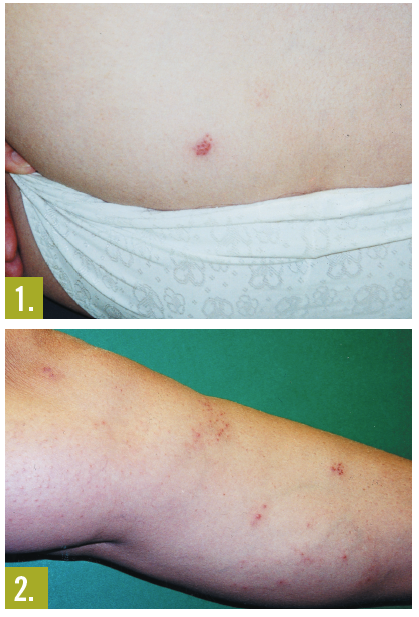What Does Herpes Leg Pain Feel Like?

Herpes leg pain can feel like a dull ache in the hamstrings or calves or a sharp pain. It may start in the buttocks and shoot down the leg. A doctor may prescribe medication to block the pain or alter its sensation. Aspirin can help take the edge off the pain.
Symptoms of genital herpes
Most people with herpes don't know they have it until the symptoms begin. These symptoms usually start as small, tingling pain in the genital area. Then they may progress to pain in the buttocks, legs, and hips. The pain may be so severe in some people that it affects urination. It may also lead to painful ulcers.
The symptoms of oral herpes may be more severe if the affected person has an immune system problem, such as leukemia or HIV. Those who are healthy may experience only mild symptoms. Cold sores are painful but generally harmless and heal in a few weeks. Infants are particularly susceptible to cold sores and may develop a fever blister.
One 33-year-old woman presented pain in her left leg and back and reported self-limited discomfort for four days. She had previously suffered from an outbreak of genital herpes at the age of 10 years. The patient was admitted to the hospital several times, and she had several previous episodes of the disorder. She also had a history of low-grade fever and a stiff neck. She underwent a contrast-enhanced MRI and a CSF analysis, which were negative.
Symptoms of recurrence of genital herpes
Symptoms of genital herpes include multiple painful blisters on the affected area. These lesions often appear in the vagina, vulva, buttocks, or anus. The outer labia and penis may also be affected. Once the first group of lesions has healed, new ones may appear. The affected area may also experience flu-like symptoms, including fever, joint pain, and headache.
Patients with recurrent herpes often have warning signs 48 hours before an outbreak occurs. These warning signs may include tingling, itching, and pain near the outbreak site. This pain can radiate down the leg and buttocks. Patients may also experience pain while defecating. A doctor can diagnose genital herpes from the eruption site and may also order a blood test. Medications are available to treat recurrent outbreaks.
Recurrent episodes of genital herpes pose little risk to the baby, but a physician should constantly monitor pregnant women. In severe cases, a woman may need a C-section. The American Congress of Obstetricians and Gynecologists (ACOG) recommends suppressive therapy for genital herpes to prevent the condition from affecting the unborn baby.
Treatment options for genital herpes
Fortunately, there are several treatment options for genital herpes leg symptoms, including antiviral medications. These medications can reduce the severity and frequency of an outbreak and also help reduce transmission. They can be taken in pill form but may also be given as ointments.
Symptoms of genital herpes can include pain, swelling, and difficulty passing urine. The virus can also cause vaginal discharge. Although the initial outbreak is often painful and may even require a urinary catheter, recurrences of genital herpes are usually less painful than the first episode. Symptoms typically improve within three days.
Treatment options for genital herpes outbreaks are available at various health clinics. Patients should consult with their GP to determine whether a treatment option is appropriate. A doctor may recommend antiviral medicine that lasts for six to 12 months. If symptoms do not improve, the patient may be referred to a specialist for further treatment.




